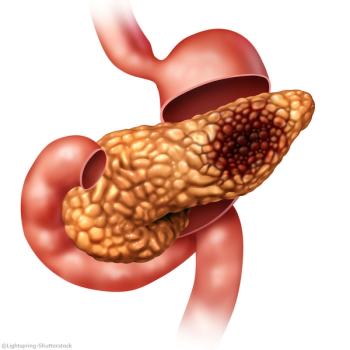
Oncology NEWS International
- Oncology NEWS International Vol 18 No 9
- Volume 18
- Issue 9
Common diabetes drug lowers risk for cancer of the pancreas
Metformin reduces an individual’s risk of developing pancreatic cancer by 62%, according to research from Houston’s M.D. Anderson Cancer Center. Metformin is the most commonly prescribed drug for patients with type 2 diabetes, who are often obese and/or have insulin resistance.
Metformin reduces an individual's risk of developing pancreatic cancer by 62%, according to research from Houston's M.D. Anderson Cancer Center. Metformin is the most commonly prescribed drug for patients with type 2 diabetes, who are often obese and/or have insulin resistance.
The researchers enrolled 1,838 participants (973 patients with pancreatic adenocarcinoma, 863 cancer-free individuals). Of these, 259 patients and 109 controls were diabetics. They found that diabetics who took metformin alone or in any combination with other diabetic therapies had a 62% risk reduction compared to those who never used the drug (Gastroenterology 137:482-488, 2009).
Diabetics who had taken insulin had a 4.99-fold increased risk for the disease, compared with never users.
Articles in this issue
over 16 years ago
Industry Watchover 16 years ago
Letter to the Editorover 16 years ago
Novel chemoRT regimen ups survival in pancreatic caover 16 years ago
Low expression of MSH2 protein predicts survival in NSCLCover 16 years ago
Prostate cancer pilot program stresses patient-oriented careover 16 years ago
CT distinguishes liver cancer mets from lung primaryover 16 years ago
Prostate cancer patients seek out mind-body careover 16 years ago
Who's NewsNewsletter
Stay up to date on recent advances in the multidisciplinary approach to cancer.




































